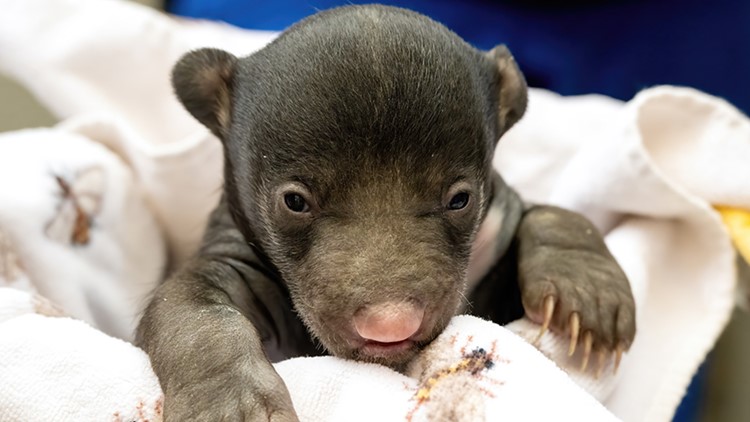MIAMI — Thanks to the help from staff at Zoo Miami, two sloth bear cubs have been welcomed to the world!
Back on Dec. 4, a 4-year-old sloth bear named Kematee gave birth to a single cub in a den area located behind her habitat at 4 a.m. – and then at around 9:30 a.m. – she gave birth to her second cub, zoo officials said.
The two cubs are the first births for Kematee after she arrived at Zoo Miami in 2021 from the Philadelphia Zoo where she was born, Zoo Miami said in a news release.
The father of the family is 11-year-old Hank. He first came to Zoo Miami in 2016 from the National Zoo in Washington D.C. where he was born. The two cubs are his first surviving one.
Zoo Miami says the two newborns are the first sloth bears to be born at the facility since 1998.
The cubs are both female and appear to be in good health with each weighing between 2 and 3 pounds.
"Kematee will remain off-exhibit, secluded in her den with the cubs, to help ensure that they are able to continue to establish a strong bond with minimal interruptions or distractions," Zoo Miami said. "She is demonstrating excellent maternal care, and the hope is to introduce mom and cubs onto their outdoor habitat as soon as the staff is confident that they are able to safely navigate the area which may take several weeks."
According to wildlife officials, sloth bears are considered a vulnerable species since they are mainly threatened by poaching and the destruction of their habitat.
The zoo also says these types of bears are typically found in moist and dry forests of the Indian subcontinent and mostly eat fruit and insects – including a special love for termites.
"There is a gap in their upper front teeth which enables them to create a straw with their long lips and suck up termites and other insects quickly and effectively," the news release mentions. "Their long shaggy coat does not have an undercoat, so it helps keep them cool in their native warm climate while protecting them from biting insects."
To learn more about the cubs, click here.



